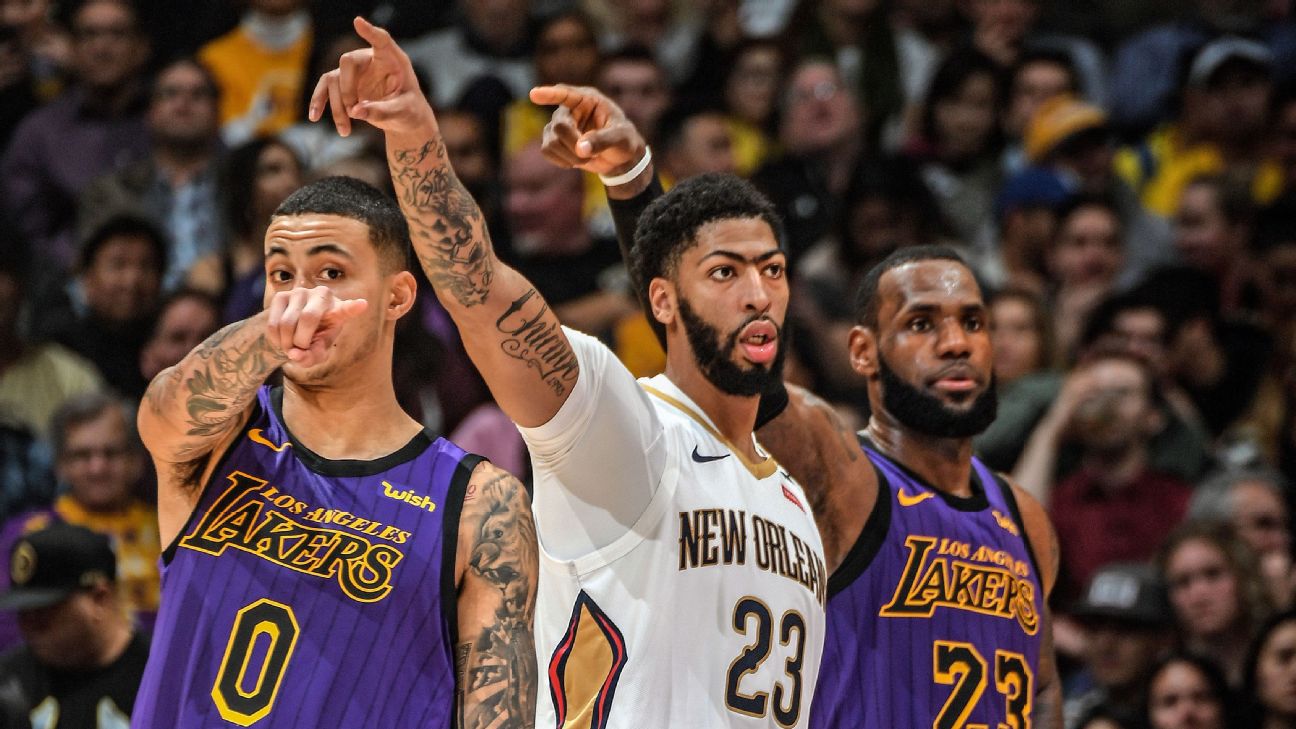Admittedly, I have been following professional sports less and less in the past few years, ever since I quit playing fantasy football in 2015. I barely watched the 2019 NBA finals, despite the devastating injuries to future hall-of-famers Kevin Durant and Klay Thompson and the potential of Jeremy Lin becoming the first Asian-American to win an NBA championship (which he later accomplished, playing a whopping 1 minute in the final series). Still, I could not help but jump on the bandwagon and discuss my thoughts on the recent blockbuster trade of New Orleans Pelicans star Anthony Davis, which I argue is the biggest sports trade in recent memory, immediately transforming a Lakers team who fell shy of the playoffs this year to championship favorites for the 2019-2020 season, but also provides much needed depth and future consistency for the Pelicans, who are looking to build a dynasty around Zion Williamson, the most hyped NBA prospect in recent memory.
The Brow has only made the playoffs twice in his 7-year career (one of which he was out the whole year with a knee and shoulder injury) but has averaged an astounding 30.5 points and 12.7 total rebounds through 3 playoff series. Meanwhile, the King comes off of the first season in 8 years without reaching the NBA finals, a state I don't think he will plan on staying in for long. With a waning Chris Paul (Rockets), beat up Warriors, and Kawhi's increased odds of staying in Toronto after such a successful season, potentially leaving Clippers in the dust, I believe the Lakers trio of James, Davis, Kuzma, and the potential addition of Kemba/Kyrie at PG and Trevor Ariza at SG can go head to head with any starting five in the league. Depth may be a potential issue, however.
This may well be one of the most exciting NBA seasons to watch. Despite my lack of analytical research, here are my picks for the eight teams in the NBA next season most likely to win the NBA finals - due to the high volatility of the sports world, I'm sure will outshine some expert's picks:
1. Lakers (Alright, I'm jumping on the bandwagon, I really respect LeBron and AD as players and human beings and want them to do well)
2. 76ers (They will be back next year firing with vengeance, and have one of the best lineups in the league)
3. Bucks (Giannis. Enough said. Also their bench really impressed me this season, and are the best team in the league without a legitimate 3-point threat)
4. Thunder (Obviously I'm biased towards my favorite team here, but if Westbrook doesn't figure out how to win in the playoffs this season, he never will. PG has also gone through hard knocks)
5. Rockets (Harden is Harden, but I believe the Rockets' best shots at the finals are behind them)
6. Raptors (I just don't see the North pulling through again after a historic season, but I do expect them to make it far-ish in the playoffs)
7. Clippers (They were the shock of the season, and if they can get Kawhi... watch out)
8. Warriors (Curry + Green + Boogie are still major talent)
You heard it here first.
 |
| Source: ESPN.com |
This may well be one of the most exciting NBA seasons to watch. Despite my lack of analytical research, here are my picks for the eight teams in the NBA next season most likely to win the NBA finals - due to the high volatility of the sports world, I'm sure will outshine some expert's picks:
1. Lakers (Alright, I'm jumping on the bandwagon, I really respect LeBron and AD as players and human beings and want them to do well)
2. 76ers (They will be back next year firing with vengeance, and have one of the best lineups in the league)
3. Bucks (Giannis. Enough said. Also their bench really impressed me this season, and are the best team in the league without a legitimate 3-point threat)
4. Thunder (Obviously I'm biased towards my favorite team here, but if Westbrook doesn't figure out how to win in the playoffs this season, he never will. PG has also gone through hard knocks)
5. Rockets (Harden is Harden, but I believe the Rockets' best shots at the finals are behind them)
6. Raptors (I just don't see the North pulling through again after a historic season, but I do expect them to make it far-ish in the playoffs)
7. Clippers (They were the shock of the season, and if they can get Kawhi... watch out)
8. Warriors (Curry + Green + Boogie are still major talent)
You heard it here first.

#lakersnation baby
ReplyDelete